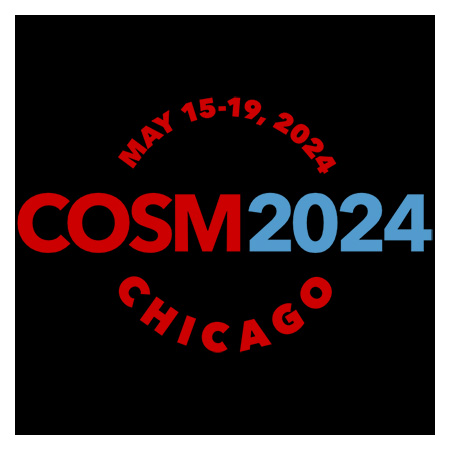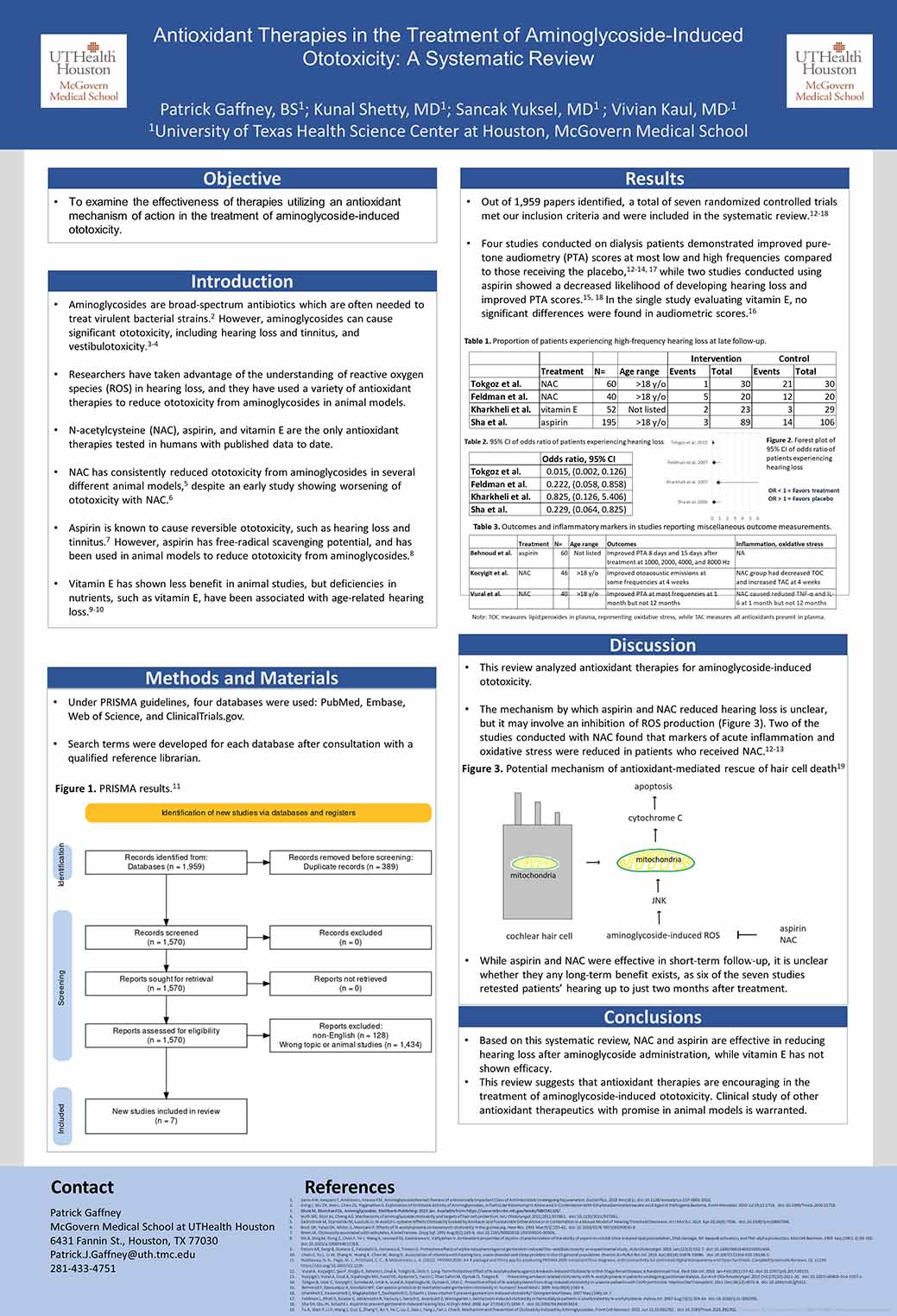Are Antioxidant Therapies Effective in the Treatment of Aminoglycoside-Induced Ototoxicity?
 Broad-spectrum, bactericidal antibiotics classed as aminoglycosides are commonly prescribed for infections caused by gram-negative bacteria with high resistance to antibiotics. They are also known to be toxic to the inner-ear sensory cells responsible for hearing and balance. Recently, researchers in the Department of Otorhinolaryngology at McGovern Medical School at UTHealth Houston reviewed the results of randomized controlled trials investigating the effectiveness of diminishing ototoxicity with antioxidants and other agents intended to reduce oxidative stress. They presented the results of their retrospective review at the Combined Otolaryngology Spring Meetings (COSM) held in May in Chicago.
Broad-spectrum, bactericidal antibiotics classed as aminoglycosides are commonly prescribed for infections caused by gram-negative bacteria with high resistance to antibiotics. They are also known to be toxic to the inner-ear sensory cells responsible for hearing and balance. Recently, researchers in the Department of Otorhinolaryngology at McGovern Medical School at UTHealth Houston reviewed the results of randomized controlled trials investigating the effectiveness of diminishing ototoxicity with antioxidants and other agents intended to reduce oxidative stress. They presented the results of their retrospective review at the Combined Otolaryngology Spring Meetings (COSM) held in May in Chicago.
“Aminoglycosides are recommended by the World Health Organization as the mainstay treatment for life-threatening infections, but the medications put patients at risk of ototoxicity, particularly infants and those with certain genetic conditions,” says Vivian Kaul, MD, a neurotologist and assistant professor in the department. “It’s not medically feasible to test for genetic anomalies before prescribing aminoglycosides, so we proceed prudently and attentively, knowing that the medications may cause cochlear and vestibular toxicity.”
Among 1,959 English-language articles published before July 2023, Dr. Kaul and her team found six studies that examined the benefit of antioxidant treatments up to eight weeks after administration of aminoglycosides and one study that tested participants’ hearing after one year. In six of the seven studies, antioxidant therapy resulted in significant reduction of ototoxicity. Aspirin and N-acetylcysteine were more effective than vitamin E.
“These studies suggest that antioxidant therapies may provide a therapeutic option for aminoglycoside-induced ototoxicity,” Dr. Kaul says. “We need further research to determine whether aspirin and N-acetylcysteine provide long-term benefit.”
The research, presented at COSM by fourth-year medical student Patrick Gaffney, is a UTHealth Houston offshoot of a meta-analysis examining the effect of aminoglycosides on hearing loss in the infant patient population. Dr. Kaul is participating in the meta-analysis as a member of the Joint Committee on Infant Hearing, which includes representatives from the American Academy of Pediatrics, the American Academy of Otolaryngology-Head and Neck Surgery, the American Speech-Language-Hearing Association, the American Academy of Audiology, the Council on Education of the Deaf, and directors of speech and hearing programs in state health and welfare agencies.
